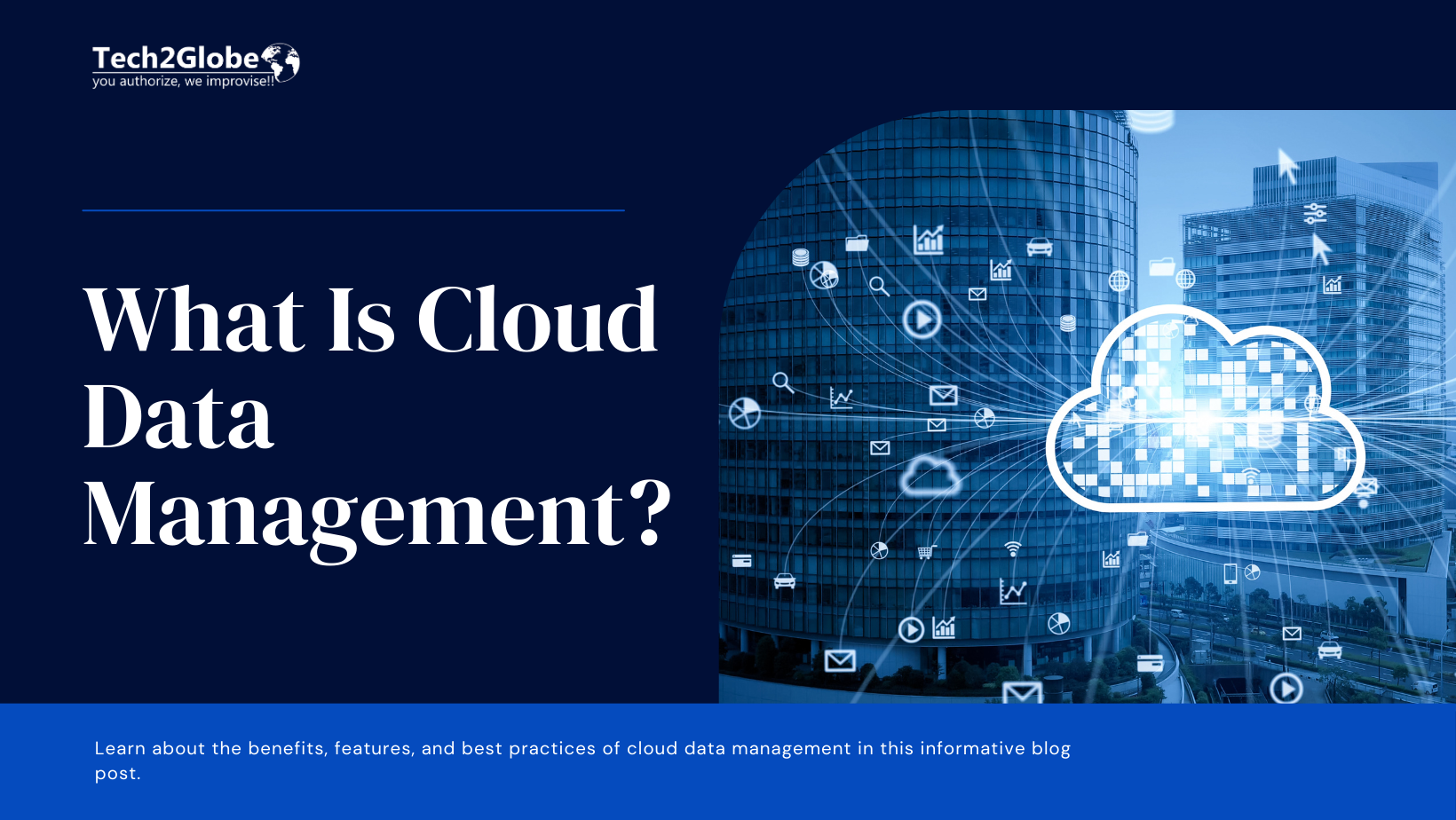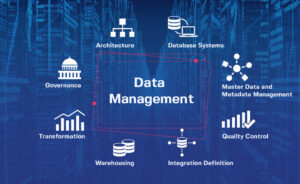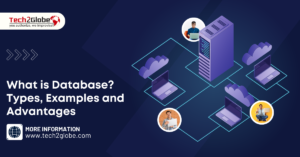In today’s digital environment, we are not ignorant of the fact that data management is playing a crucial role in how organizations manage their most valuable information. What is data management at its core? This includes the practices, policies, and technologies used to efficiently acquire, store, organize, protect, and retrieve data. As enterprises increasingly rely on cloud computing for their operations, the concept of managing cloud data is emerging as a priority.
That’s where cloud computing management software comes in. It is software that controls and optimizes your cloud storage and applications. A few examples of cloud computing software include Dropbox, a system for storing and sharing files. Microsoft Azure provides backup and disaster recovery services, as well as hosting and other features. Rackspace provides data, security, and infrastructure services.
Understanding what is cloud data is crucial, as it influences how businesses use their digital resources for progress and innovation. So, let’s understand all about cloud data management.
What is Cloud Data Storage?
Before understanding -what is cloud data storage, let’s know about what a data cloud is. A data cloud is a cloud-based infrastructure that offers on-demand computing, storage, delivery, and advanced analytics capabilities. At the same time, cloud storage provides secure and scalable storage for immutable data, including photos, text, videos, and other file formats. Objects are stored in buckets, each associated with a project and organized by organization.
You may protect or secure data with your encryption keys using Google Cloud’s Key Management service or by running your key management service on-premises. You can give authorization to certain people and teams or make the objects completely public for use cases like websites. When building buckets, you have options based on your budget, availability, and access frequency. Select regular regional or multiregional buckets for high performance, frequent access, and maximum availability, Nearline for once-a-month access, Cold line for less than once a quarter, and Archive for data that you wish to keep for years.
Difference between Traditional and Cloud Data Management.
Traditional data management or on-premises data management, focuses on controlling your organization’s data within the constraints of your local network. It processes, stores, and maintains files, databases, and archives that are housed on your company’s hardware systems. Backups, upgrades, and disaster recovery plans are frequently managed manually by IT staff.
Cloud data management, on the other hand, is a modern approach of managing data housed on internet-based cloud platforms. The main advantage of this technique is that it allows you to manage not only data saved in the cloud, but also data kept on-premises. It is designed to work with various cloud services and presents both fresh and challenging options as compared to older approaches.
Advantages of Cloud Data Management
If you work as an enterprise architect or a data management leader, you may be interested in learning how cloud data management may help your company expand, become more efficient, and agile. Here are some benefits of managing cloud data:
Pricing per service
Cloud service providers typically charge customers per gigabyte per month. This means organizations don’t have to buy storage hardware. Instead, they pay for the use of cloud storage.
Scalability
When existing storage resources are depleted, the organization must purchase additional storage resources to meet its projected future needs. However, cloud storage providers almost always have unlimited capacity available. Organizations never have to worry about running out of storage or complex capacity management.
There is no maintenance required.
Public cloud providers conduct all necessary maintenance, so businesses never have to worry about replacing damaged hard drives, performing hardware refreshes, or installing firmware updates.
Automated backups
Most cloud providers automatically backup cloud-stored data, but not all, as some other cloud backup providers also give you the ability to make your data backups immutable over time, helping to keep your data.
Increased data quality
Many cloud data management technologies are meant to centralize data, thereby letting a single data set be used throughout the company. Applying this strategy helps reduce duplicate data, lowering storage costs while also removing inconsistencies.
Cloud Data Management Use Cases
Managing data in the cloud will be fairly similar to managing an on-premises data repository, with a few additional considerations. Many cloud providers will assist with some parts of data management, but each firm is ultimately accountable for its own data management.
By outsourcing these services, a company can leverage a comprehensive range of cloud data management services, such as:
Installation
Cloud data management can make it easier to provision test and development environments because test environments can be created from production data sets.
Sharing data across many cloud environments
Cloud data management also allows for easy data sharing. Because a single data collection is shared, it can serve as a single source of truth rather than each program relying on its own isolated dataset.
Data backup and recovery
Cloud data management provides a dependable and flexible backup and recovery solution. Organizations can store their data on the cloud, ensuring data security.
Data analysis and business intelligence
Cloud data management enables businesses to process and analyze massive amounts of data via cloud-based analytics services and tools. Organizations that keep data in the cloud may easily access and analyze it to gain valuable information, which helps in making data-driven decisions.
Data integration, including extraction, transformation, and loading
Cloud data management makes data integration and ETL procedures more efficient by providing scalable and flexible infrastructure. Data from multiple sources can be merged, converted and placed into cloud-based data warehouses or analytics platforms for further processing and analysis.
Long-term storage and data archiving
Cloud storage is an affordable solution. Organizations can use the cloud to offload infrequently accessed data, decreasing storage costs and ensuring data durability.
Conclusion
Do you now understand–-what is cloud data? In an age where data is being hailed as the new currency, effective cloud data management is emerging as a key to organizational success. At Tech2Globe, we are all about providing the best data management services. By partnering with a trusted provider like us, businesses can confidently navigate the complexities of cloud data management.










